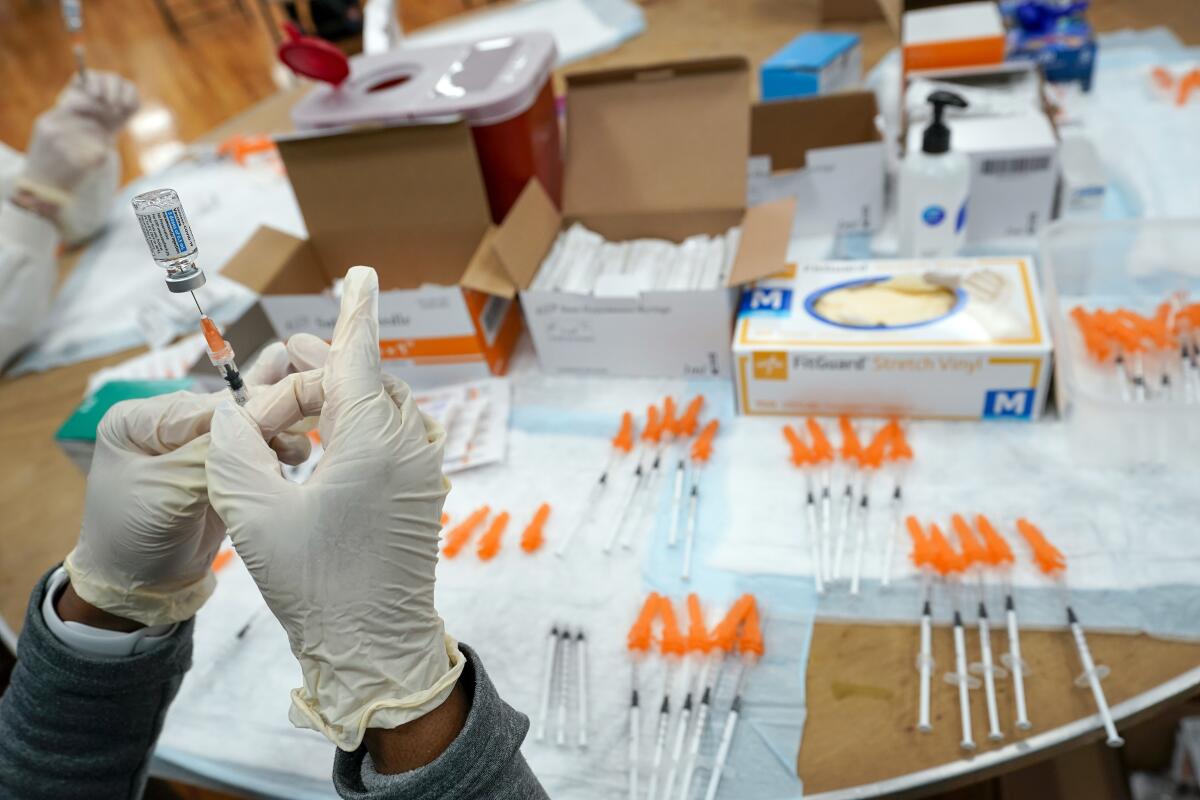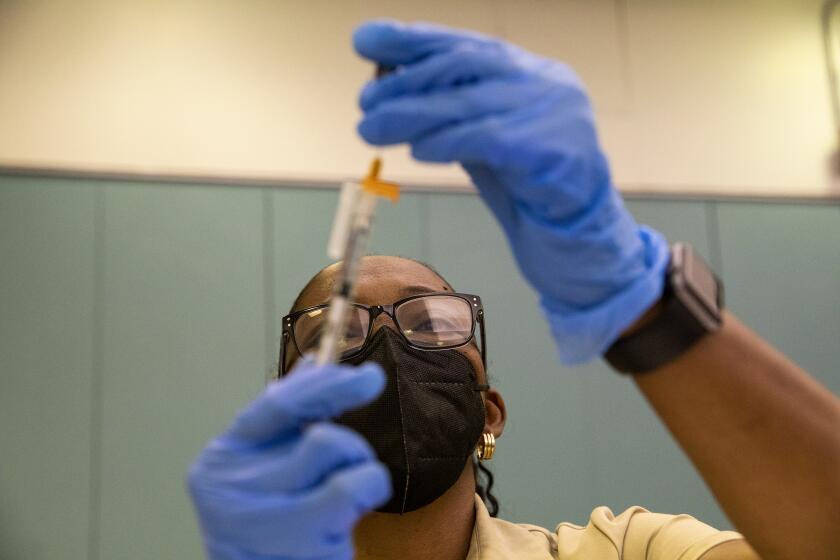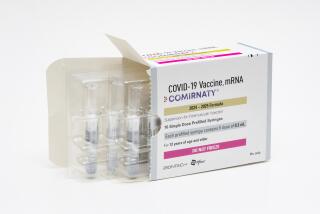COVID boosters for the fall must target newer Omicron mutations, FDA says

- Share via
U.S. regulators told COVID-19 vaccine makers Thursday that any booster shots tweaked for the fall will have to add protection against the newest mutations of Omicron.
The Food and Drug Administration said the original vaccines would be used for people still getting their first series of shots. But with immunity waning and the super-contagious Omicron family of coronavirus variants getting better at dodging protection, the FDA decided boosters intended for fall need an update.
The recipe: Combination shots that add protection against the Omicron relatives named BA.4 and BA.5 to the original vaccine. Those subvariants together now account for just over half of new U.S. infections, according to estimates from the Centers for Disease Control and Prevention.
It’s still a gamble as there’s no way to know if a version of Omicron still will be a threat as cold weather approaches or if a newer variant will take its place. The current Pfizer and Moderna vaccines still offer strong protection against COVID-19’s worst outcomes as long as people have received already recommended boosters.
The combination approach — what scientists call “bivalent” shots — would allow the boosters to retain the proven benefits of the original vaccine while adding to its breadth of protection.
It’s a common vaccine strategy: Flu shots, for instance, can protect against up to four influenza strains and are tweaked annually depending on what’s circulating.
People who had only two initial doses of an mRNA COVID-19 vaccine fared no better against Omicron than those who were unvaccinated, new study finds.
The FDA’s decision comes after its scientific advisers recommended earlier this week that any boosters for a fall campaign should contain some version of Omicron. But they left undecided whether that version should be the Omicron strain that caused last winter’s surge or the genetically distinct relatives that have replaced it.
Pfizer and Moderna already were brewing and testing boosters updated to target the original version of Omicron in anticipation of an October rollout. They found that adding the extra protection was safe and spurred production of more Omicron-fighting antibodies than just getting another dose of today’s vaccine.
Pfizer had begun work on another experimental shot to target the newer strains the FDA ultimately settled on.
“We’re continuing to collect more data from our study on BA.4/5 and will be in touch as soon as we are ready to submit,” Pfizer spokeswoman Jerica Pitts said in an emailed message.
A young Briton agreed to be infected with the coronavirus for a scientific study of the most consequential virus on the planet.
Moderna told FDA’s advisers that switching to the even newer strains now circulating might delay its booster update another month. Moderna didn’t immediately respond to requests for comment Thursday.
The FDA’s order doesn’t guarantee that those combo shots would be offered in the fall. Manufacturers still have to provide key data before the agency decides whether to authorize modified boosters — and the CDC then would have to decide how they’re used.
An all-important first booster of the current vaccine already is urged for all Americans age 5 and older. People 50 and older are eligible for a second booster. With Omicron, authorities say the shots’ protection against COVID-19 hospitalization, while still robust, has slipped some in older adults and a second booster can help restore it.








